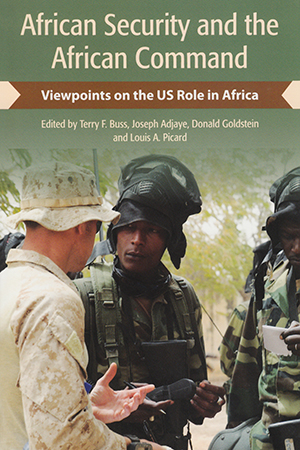In 2007, the Bush administration created a new military presence in Africa—AFRICOM (US Africa Command)—which has been vigorously debated ever since. Some see AFRICOM as the answer to an African security system crippled by a lack of resources, widespread politicization, and institutional weakness. Others claim that the program is nothing more than another attempt by the US to secure its own interests in the region. In African Security and the African Command, contributors with a range of views on the issues examine the objectives and activities of AFRICOM, offering a well-rounded picture of ongoing security challenges in Africa and what might be done to address them.
Terry F. Buss is distinguished professor of public policy at the Heinz College of Carnegie Mellon University. Joseph Adjaye is professor emeritus of African history and culture at the University of Pittsburgh.The late Donald Goldstein was professor of international affairs at the University of Pittsburgh's Graduate School of Public and International Affairs. Louis A. Picard is the director of the Ford Institute for Human Security at the University of Pittsburgh's Graduate School of Public and International Affairs.
"A remarkably thorough, scholarly, topical, and captivating analysis of US military policy and options regarding security issues in Africa.... This study opens a new field of analysis linking US military policy with Africa's development, and it is a must read for anyone interested in US foreign policy, African governance, or global security."—Joshua B. Forrest, La Roche College
"One of the very positive outcomes of the AFRICOM debate.... This scholarly and easy-to-read collection provides insights into the origins of the Africa Command, the arguments used by parties on both sides of the debate, and the complexities of the ever-changing African security landscape. Best of all, it offers well-researched policy proposals on how the US Government ... can work more effectively with African partners in addressing Africa’s urgent security needs."— Claudia E. Anyaso, former member of the AFRICOM Planning and Implementation Team








